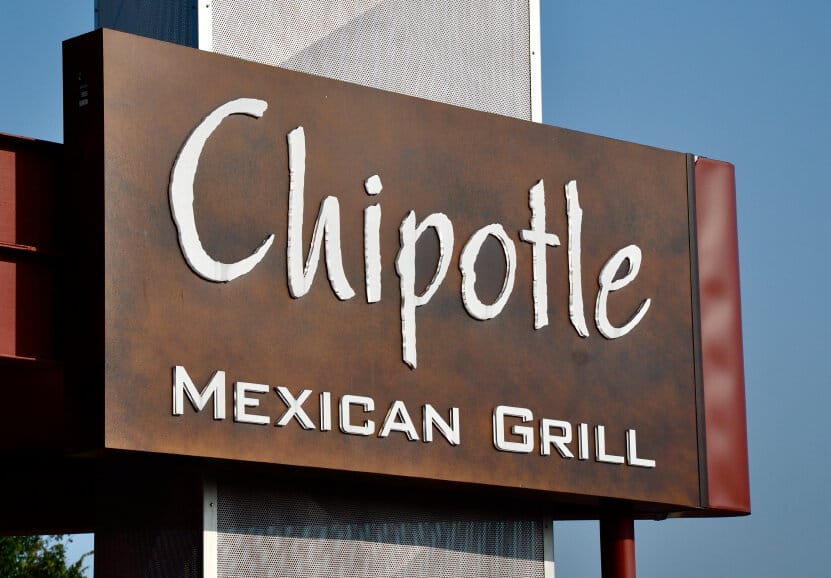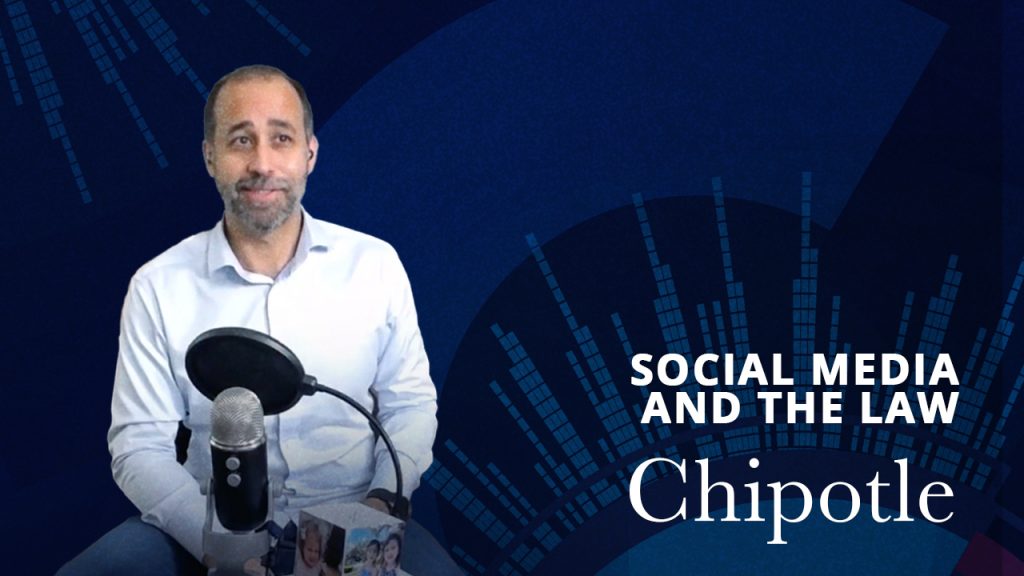Chipotle, one of the country’s leading restaurants and top “healthy” fast-food choice, has been hit with a rash of bad luck in 2015. Numerous health concerns and store closings due to food-borne illness has caused its stock price to fall and people to feel nervous about walking through its doors.
I spent all last week barely able to make it to my computer to work. As a writer, and a freelancer, this can be your biggest fear. I was diagnosed with norovirus, something I had only recently learned existed in the world. The symptoms were sever enough to keep me unemployed for a week. However, it gave me time to reflect on a similar topic – Chipotle – and its battle to climb back to the top (lucky me).
With any major incident, there is always a period of recovery. This is all part of brand management. Companies must prepare for events such as these in order to ensure they come out profitable when the clouds start to clear.
It’s what a brand accomplishes during this period of recovery that makes the difference between it returning to normal or becoming forever damaged.
Currently for Chipotle, all signs point to recovery.
Chipotle – From infant to market leader:
It was in 2009 that my father came to me with a hot stock tip. Probably another crazy idea that he picked up from his idol Jim Cramer, but I decided to hear him out. It was for a little known restaurant that specialized in burritos. You guessed it, Chipotle.
I asked if he had ever eaten there and of course he had not. My next question to him was how anyone in their right mind would invest close to $100 per share on a restaurant stock, already trading at its 52-week average I might add, when they haven’t even eaten there.
It was almost three years later when he provided me with his answer. A 400%+ gain in the stock purchase price and a smile on his face that you couldn’t remove with a grinder.
Chipotle came out of nowhere and few people, other than its shareholders, saw it coming. Not only has the company continued to be profitable, but by 2015 it was the leading health fast food chain in the United States.
Then it all came crashing down:
After becoming one of the most popular food chains in the United States, Chipotle took some hits in 2015. While most people remember the worse from August, it actually stated a month prior in Seattle. It was at that time when 5 people were reported to have become ill with E.coli, believed to have come from a Chipotle restaurant.
August took its biggest toll on Chipotle. With the largest numbers reported to date in California (200+) and Minnesota (60+), people contracted illnesses that included salmonella poisoning and norovirus. This was when the company stock took its first large hit, falling approximately 10% (it has since lost more than 20%).
Just when it thought recovery was in sight, Chipotle was hit yet again. This time, more than 50 people in multiple states reported to have been infected by E.coli.
Finally, more than 120 people at Boston University reported to have become ill, this time with norovirus, apparently contracted from a local Chipotle.
While the original source of the illnesses has yet to be determined, Chipotle and health officials are all pointing towards the company’s food suppliers.
Chipotle fighting more than public perception:
In 2015, Chipotle finally took over the top spot of healthiest fast-food chain, knocking Subway down the ladder. This was not something of a shock as Chipotle has been taking market share from Subway for quite some time. In fact, Subway’s 2014 sales declined by 3 percent (sounds small but equates to $400 million). This decline was attributed largely to Chipotle, and not the Jared scandal.
And yes, Subway has the Jared scandal. However, there has been no correlation in Subway’s declining sales. So why would they hire the big guns (a.k.a. – former Coca-Cola exec. Joseph Tripodi) to come in? Well, $400 million is a lot of money.
Chipotle will need to fight its war on two fronts. In addition to the health concerns, it needs to prepare for the war that is coming from Subway and other competing brands. This will be difficult with the likelihood of higher supply costs associated with the E.coli outbreak.
So what’s a brand to do?
Brand management is big business. In fact, ask Volkswagen how much brand management costs after its recent emission’s scandal. Brand management often comes with reputation management if the brand is not managed properly beforehand.
In the case of Chipotle, they did a good job of managing the brand before the outbreaks. The company had a great reputation for using the highest quality foods. So, the best defense is a good offense.
In fact, when the news of the initial outbreak hit, many people read the press scratching their heads. “How could Chipotle have E.coli?” If you are a brand, this is exactly how you want the public to react. Many people were initially in disbelief.
Chipotle was also quick to take care of the issue on its own. This shows trust. When it became aware of the possible outbreak, it voluntarily shut down restaurants and reported it to public health officials. Of course, this was inevitable as they would have likely been shut down by health officials anyway (and some were), but it was a great step in showing the public there was nothing to hide.
Some people have criticized Chipotle’s response, saying that it should communicate how it is going to do things different. However, given the facts, the response has been appropriate. There is no way to know how you are going to do things differently in the future without taking care of the immediate threat now, something that Chipotle took upon itself without government interference.
In fact, Chipotle did have a forward looking response. They announced deeps cleaning at its restaurants and replaced ingredients from those locations. It also fully cooperated with health officials, supplying them with all data about food sourcing.
Finally, Chipotle apologized for the incident on numerous occasions. Even if fault isn’t its own, the chain stepped up to let people know it was sorry that it was even a catalyst for what took place. Sometimes a sincere apology is what people want before even considering using a brand again.
Chipotle did a great job of having a response ready. It also showed remorse, despite not being the direct cause of the issue. Its response of letting people know how it is handling the problem was appropriate and satisfactory to many consumers. It has already seen its reward with an increase in stock price (although relatively small); and, will likely see the return of many who have waited to see how the whole situation unfolds.
Time will tell with Chipotle. I for one will eat there again. Will you? Would love to hear your thoughts below.






![Law in the Digital Age: Exploring the Legal Intricacies of Artificial Intelligence [e323]](https://www.pashalaw.com/wp-content/uploads/2023/11/WhatsApp-Image-2023-11-21-at-13.24.49_4a326c9e-300x212.jpg)
![Unraveling the Workforce: Navigating the Aftermath of Mass Layoffs [e322]](https://www.pashalaw.com/wp-content/uploads/2023/07/Untitled-design-23-300x212.png)
![Return to the Office vs. Remote: What Can Employers Legally Enforce? [e321]](https://www.pashalaw.com/wp-content/uploads/2023/01/Pasha_LSSB_321_banner-300x212.jpg)
![Explaining the Hans Niemann Chess Lawsuit v. Magnus Carlsen [e320]](https://www.pashalaw.com/wp-content/uploads/2022/10/LAWYER-EXPLAINS-7-300x169.png)
![California v. Texas: Which is Better for Business? [313]](https://www.pashalaw.com/wp-content/uploads/2021/07/Pasha_LSSB_CaliforniaVSTexas-300x212.jpg)
![Buyers vs. Sellers: Negotiating Mergers & Acquisitions [e319]](https://www.pashalaw.com/wp-content/uploads/2022/06/Pasha_LSSB_BuyersVsSellers_banner-300x212.jpg)
![Employers vs. Employees: When Are Employment Restrictions Fair? [e318]](https://www.pashalaw.com/wp-content/uploads/2022/05/Pasha_LSSB_EmployeesVsEmployers_banner-1-300x212.jpg)
![Vaccine Mandates Supreme Court Rulings [E317]](https://www.pashalaw.com/wp-content/uploads/2022/02/WhatsApp-Image-2022-02-11-at-4.10.32-PM-300x212.jpeg)
![Business of Healthcare [e316]](https://www.pashalaw.com/wp-content/uploads/2021/11/Pasha_LSSB_BusinessofHealthcare_banner-300x212.jpg)
![Social Media and the Law [e315]](https://www.pashalaw.com/wp-content/uploads/2021/10/WhatsApp-Image-2021-10-06-at-1.43.08-PM-300x212.jpeg)
![Defining NDA Boundaries: When does it go too far? [e314]](https://www.pashalaw.com/wp-content/uploads/2021/09/Pasha_LSSB_NDA_WordPress-2-300x212.jpg)
![More Than a Mistake: Business Blunders to Avoid [312] Top Five Business Blunders](https://www.pashalaw.com/wp-content/uploads/2021/06/Pasha_LSSB_Blunders_WP-1-300x212.jpg)
![Is There a Right Way to Fire an Employee? We Ask the Experts [311]](https://www.pashalaw.com/wp-content/uploads/2021/02/Pasha_LSSB_FireAnEmployee_Website-300x200.jpg)
![The New Frontier: Navigating Business Law During a Pandemic [310]](https://www.pashalaw.com/wp-content/uploads/2020/12/Pasha_LSSB_Epidsode308_Covid_Web-1-300x200.jpg)
![Wrap Up | Behind the Buy [8/8] [309]](https://www.pashalaw.com/wp-content/uploads/2020/11/Pasha_BehindTheBuy_Episode8-300x200.jpg)
![Is it all over? | Behind the Buy [7/8] [308]](https://www.pashalaw.com/wp-content/uploads/2020/09/iStock-1153248856-overlay-scaled-300x200.jpg)
![Fight for Your [Trademark] Rights | Behind the Buy [6/8] [307]](https://www.pashalaw.com/wp-content/uploads/2020/07/Fight-for-your-trademark-right-300x200.jpg)
![They Let It Slip | Behind the Buy [5/8] [306]](https://www.pashalaw.com/wp-content/uploads/2020/06/Behind-the-buy-they-let-it-slip-300x200.jpg)
![Mo’ Investigation Mo’ Problems | Behind the Buy [4/8] [305]](https://www.pashalaw.com/wp-content/uploads/2020/05/interrobang-1-scaled-300x200.jpg)
![Broker or Joker | Behind the Buy [3/8] [304] Behind the buy - Broker or Joker](https://www.pashalaw.com/wp-content/uploads/2020/04/Joker-or-Broker-1-300x185.jpg)
![Intentions Are Nothing Without a Signature | Behind the Buy [2/8] [303]](https://www.pashalaw.com/wp-content/uploads/2020/04/intentions-are-nothing-without-a-signature-300x185.jpg)
![From First Steps to Final Signatures | Behind the Buy [1/8] [302]](https://www.pashalaw.com/wp-content/uploads/2020/04/first-steps-to-final-signatures-300x185.jpg)
![The Dark-side of GrubHub’s (and others’) Relationship with Restaurants [e301]](https://www.pashalaw.com/wp-content/uploads/2015/04/When-Competition-Goes-Too-Far-Ice-Cream-Truck-Edition-300x201.jpg)
![Ultimate Legal Breakdown of Internet Law & the Subscription Business Model [e300]](https://www.pashalaw.com/wp-content/uploads/2019/05/Ultimate-Legal-Breakdown-of-Internet-Law-the-Subscription-Business-Model-300x196.jpg)
![Why the Business Buying Process is Like a Wedding?: A Legal Guide [e299]](https://www.pashalaw.com/wp-content/uploads/2019/03/futura-300x169.jpg)
![Will Crowdfunding and General Solicitation Change How Companies Raise Capital? [e298]](https://www.pashalaw.com/wp-content/uploads/2018/11/Will-Crowdfunding-and-General-Solicitation-Change-How-Companies-Raise-Capital-300x159.jpg)
![Pirates, Pilots, and Passwords: Flight Sim Labs Navigates Legal Issues (w/ Marc Hoag as Guest) [e297]](https://www.pashalaw.com/wp-content/uploads/2018/07/flight-sim-labs-300x159.jpg)
![Facebook, Zuckerberg, and the Data Privacy Dilemma [e296] User data, data breach photo by Pete Souza)](https://www.pashalaw.com/wp-content/uploads/2018/04/data-300x159.jpg)
![What To Do When Your Business Is Raided By ICE [e295] I.C.E Raids business](https://www.pashalaw.com/wp-content/uploads/2018/02/ice-cover-300x159.jpg)
![General Contractors & Subcontractors in California – What you need to know [e294]](https://www.pashalaw.com/wp-content/uploads/2018/01/iStock-666960952-300x200.jpg)
![Mattress Giants v. Sleepoplis: The War On Getting You To Bed [e293]](https://www.pashalaw.com/wp-content/uploads/2017/12/sleepopolis-300x159.jpg)
![The Harassment Watershed [e292]](https://www.pashalaw.com/wp-content/uploads/2017/12/me-2-300x219.jpg)
![Investing and Immigrating to the United States: The EB-5 Green Card [e291]](https://www.pashalaw.com/wp-content/uploads/2012/12/eb-5-investment-visa-program-300x159.jpg)
![Responding to a Government Requests (Inquiries, Warrants, etc.) [e290] How to respond to government requests, inquiries, warrants and investigation](https://www.pashalaw.com/wp-content/uploads/2017/10/iStock_57303576_LARGE-300x200.jpg)
![Ultimate Legal Breakdown: Employee Dress Codes [e289]](https://www.pashalaw.com/wp-content/uploads/2017/08/Ultimate-Legal-Breakdown-Template-1-300x159.jpg)
![Ultimate Legal Breakdown: Negative Online Reviews [e288]](https://www.pashalaw.com/wp-content/uploads/2017/06/Ultimate-Legal-Breakdown-Online-Reviews-1-300x159.jpg)
![Ultimate Legal Breakdown: Social Media Marketing [e287]](https://www.pashalaw.com/wp-content/uploads/2017/06/ultimate-legal-breakdown-social-media-marketing-blur-300x159.jpg)
![Ultimate Legal Breakdown: Subscription Box Businesses [e286]](https://www.pashalaw.com/wp-content/uploads/2017/03/ultimate-legal-breakdown-subscription-box-services-pasha-law-2-300x159.jpg)
![Can Companies Protect Against Foreseeable Misuse of Apps [e285]](https://www.pashalaw.com/wp-content/uploads/2017/01/iStock-505291242-300x176.jpg)
![When Using Celebrity Deaths for Brand Promotion Crosses the Line [e284]](https://www.pashalaw.com/wp-content/uploads/2017/01/celbrity-300x159.png)
![Are Employers Liable When Employees Are Accused of Racism? [e283] Racist Employee](https://www.pashalaw.com/wp-content/uploads/2016/12/Are-employers-liable-when-an-employees-are-accused-of-racism-300x159.jpg)
![How Businesses Should Handle Unpaid Bills from Clients [e282] What to do when a client won't pay.](https://www.pashalaw.com/wp-content/uploads/2016/12/How-Businesses-Should-Handle-Unpaid-Bills-to-Clients-300x159.png)
![Can Employers Implement English Only Policies Without Discriminating? [e281]](https://www.pashalaw.com/wp-content/uploads/2016/11/Can-Employers-Impliment-English-Only-Policies-Without-Discriminating-300x159.jpg)
![Why You May No Longer See Actors’ Ages on Their IMDB Page [e280]](https://www.pashalaw.com/wp-content/uploads/2016/10/IMDB-AGE2-300x159.jpg)
![Airbnb’s Discrimination Problem and How Businesses Can Relate [e279]](https://www.pashalaw.com/wp-content/uploads/2016/09/airbnb-300x159.jpg)
![What To Do When Your Amazon Account Gets Suspended [e278]](https://www.pashalaw.com/wp-content/uploads/2016/09/What-To-Do-When-Your-Amazon-Account-Gets-Suspended-1-300x200.jpg)
![How Independent Artists Reacted to Fashion Mogul Zara’s Alleged Infringement [e277]](https://www.pashalaw.com/wp-content/uploads/2016/08/How-Independent-Artists-Reacted-to-Fashion-Mogul-Zaras-Alleged-Infringement--300x159.jpg)
![Can Brave’s Ad Replacing Software Defeat Newspapers and Copyright Law? [e276]](https://www.pashalaw.com/wp-content/uploads/2016/08/Can-Braves-Ad-Replacing-Software-Defeat-Newspapers-and-Copyright-Law-300x159.jpg)
![Why The Roger Ailes Sexual Harassment Lawsuit Is Far From Normal [e275]](https://www.pashalaw.com/wp-content/uploads/2016/07/WHY-THE-ROGER-AILES-SEXUAL-HARASSMENT-LAWSUIT-IS-FAR-FROM-NORMAL-300x159.jpeg)
![How Starbucks Turned Coveted Employer to Employee Complaints [e274]](https://www.pashalaw.com/wp-content/uploads/2016/07/iStock_54169990_LARGE-300x210.jpg)
